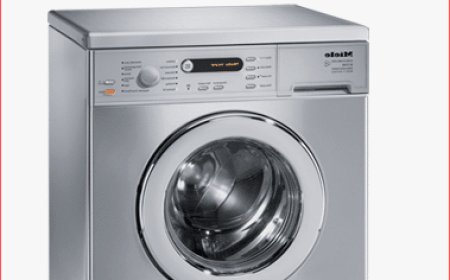How to Manage High Cholesterolemia in Dubai: Expert Advice
Learn how to manage High cholesterolemia Dubai with expert advice on diet, exercise, medications, and costs. Discover before and after results, plus 5 FAQs for better heart health.

ManagingHigh cholesterolemia Dubaiis crucial to improving overall heart health and preventing cardiovascular diseases. In Dubai, as the lifestyle and dietary habits evolve, it's essential to be informed about managing cholesterol levels. This guide will delve into the best practices for managing high cholesterol, discuss costs, highlight before and after results, and answer some of the frequently asked questions.
What is High Cholesterolemia?
High cholesterolemia Dubairefers to a condition where there is an excess of cholesterol in the bloodstream. Cholesterol is a fatty substance that the body needs for various functions, but too much can contribute to the formation of plaques in the arteries, leading to an increased risk of heart disease and stroke.
Cholesterol can be classified into two main types:
- Low-density lipoprotein (LDL): Often referred to as "bad" cholesterol, high levels of LDL can lead to plaque buildup in the arteries.
- High-density lipoprotein (HDL): Known as "good" cholesterol, HDL helps remove excess cholesterol from the bloodstream.
ManagingHigh cholesterolemia Dubaiinvolves ensuring that the levels of LDL are kept low and HDL levels are elevated.
Managing High Cholesterolemia: Expert Advice
1. Dietary Changes
One of the most effective ways to manageHigh cholesterolemia Dubaiis through diet. A heart-healthy diet can help lower LDL levels and increase HDL levels. Here are some dietary tips:
- Increase fiber intake: Foods like oats, barley, fruits, and vegetables are rich in soluble fiber, which helps lower cholesterol levels.
- Reduce saturated fat: Limit consumption of red meat, full-fat dairy products, and processed foods.
- Incorporate healthy fats: Foods such as olive oil, avocados, and nuts provide unsaturated fats that help boost HDL levels.
- Eat fatty fish: Fatty fish like salmon, mackerel, and sardines are rich in omega-3 fatty acids, which are beneficial for heart health.
2. Exercise Regularly
Physical activity plays a critical role in managingHigh cholesterolemia Dubai. Exercise can help raise HDL levels and lower LDL levels. Aim for at least 30 minutes of moderate exercise, such as brisk walking, cycling, or swimming, at least five times a week. Regular exercise also helps maintain a healthy weight, which is crucial for managing cholesterol levels.
3. Medications
For some people, lifestyle changes alone may not be enough to manageHigh cholesterolemia Dubai. Statins are the most commonly prescribed medication for lowering LDL cholesterol. Other medications, such as bile acid sequestrants, cholesterol absorption inhibitors, and PCSK9 inhibitors, may also be prescribed depending on the severity of the condition and the individuals health profile.
4. Monitor Cholesterol Levels
Regular check-ups with your doctor are essential in managingHigh cholesterolemia Dubai. Blood tests will help monitor LDL, HDL, and total cholesterol levels. This allows healthcare providers to assess how well the current management plan is working and make any necessary adjustments.
Cost of Managing High Cholesterolemia in Dubai
The cost of managingHigh cholesterolemia Dubaican vary depending on the treatment options chosen. Here are some key costs to consider:
- Consultation fees: A consultation with a cardiologist or general practitioner in Dubai typically ranges from AED 300 to AED 700.
- Cholesterol tests: The cost of cholesterol testing can range from AED 100 to AED 500, depending on the type of test and the clinic.
- Medications: The price of cholesterol-lowering medications, like statins, can vary between AED 100 to AED 300 per month, depending on the brand and type of medication prescribed.
- Dietary consultations: A session with a nutritionist may cost between AED 200 and AED 600, which can help tailor a diet plan to manage cholesterol effectively.
For a more comprehensive treatment plan, including multiple consultations and medications, the total cost can range from AED 1,500 to AED 3,000 per month, depending on the individuals specific needs and the clinics pricing structure.
Before and After Results
ManagingHigh cholesterolemia Dubaican lead to significant health improvements. With the right lifestyle changes and/or medication, individuals can expect to see improvements in their cholesterol levels within a few weeks to months. Heres what to expect:
- Before: High levels of LDL cholesterol, increased risk of heart disease, and potential plaque buildup in arteries.
- After: Reduced LDL levels, improved HDL cholesterol, a lower risk of heart disease, and overall better cardiovascular health.
While the timeline for results can vary, with consistent effort, patients can experience noticeable improvements in their cholesterol profiles.
5 FAQs About Managing High Cholesterolemia in Dubai
1. What causes high cholesterolemia in Dubai?
High cholesterol can be caused by a combination of factors, including poor diet, lack of physical activity, genetics, and certain medical conditions like diabetes and high blood pressure. In Dubai, an increasingly sedentary lifestyle and diets high in saturated fats contribute to this condition.
2. Can high cholesterol be managed without medication?
Yes,High cholesterolemia Dubaican often be managed with dietary changes, exercise, and lifestyle modifications. However, for some individuals, medications may be necessary to lower cholesterol levels to a healthy range.
3. How often should I get my cholesterol checked?
It is recommended to have your cholesterol levels checked every 4-6 years, but if you have risk factors for heart disease, such as high blood pressure or a family history of cholesterol problems, more frequent testing may be necessary.
4. Are there any foods to avoid with high cholesterol?
Yes, individuals withHigh cholesterolemia Dubaishould avoid foods high in saturated fats, such as fatty cuts of meat, full-fat dairy, and processed snacks. Trans fats, found in many fried and packaged foods, should also be avoided.
5. Can exercise alone lower cholesterol?
Exercise can help raise HDL (good cholesterol) and lower LDL (bad cholesterol). While exercise alone may not always be sufficient to reach target cholesterol levels, it is a vital part of managingHigh cholesterolemia Dubaiand improving overall heart health.
Conclusion
ManagingHigh cholesterolemia Dubairequires a combination of lifestyle changes, regular monitoring, and sometimes medication. By adopting heart-healthy habits, including a balanced diet, regular exercise, and working closely with healthcare professionals, individuals can successfully manage their cholesterol levels and reduce the risk of heart disease. Whether you're starting with dietary changes or considering medications, the right approach can lead to healthier cholesterol levels and improved overall well-being









































